Originally published on December 7, 2022
“Net zero by 2050” policies would be apocalyptically destructive if fully implemented and have already been catastrophically destructive when barely implemented.
They should be totally rejected in favor of energy freedom policies.
-
What are “net zero by 2050 policies”?
Government (coercive) actions whose primary and binding goal is the net-elimination of CO2 (and other greenhouse gas) emissions, whose number one source is fossil fuel use, by 2050.
In practice “net zero” means: rapidly eliminate most fossil fuel use.
-
“Net zero by 2050” policies include:
- Escalating restrictions or bans of fossil fuel development
- Escalating restrictions or bans of fossil fuel use
- Mandates of alternatives
- Subsidies for alternatives
- (Often) hostility to development
- (Often) hostility to nuclear
-
What are “energy freedom policies”?
Government actions to protect the ability of producers to produce all forms of energy and consumers to use all forms of energy, so long as they don’t engage in reasonably preventable pollution or endangerment of others.
-
Energy freedom policies include:
- Protecting the freedom to develop fossil fuels and other forms of energy. E.g., deep geothermal development.
- Protecting the freedom to use fossil fuels and all other forms of energy. E.g., “decriminalizing nuclear.”
-
“Net zero by 2050” is currently the number one cultural and political goal in the world
- Committed to by most world governments
- Supported by leading corporations and financial institutions
- Privately committed to by leading corporations and financial institutions
-
To determine the best policy toward fossil fuels—the energy source that powers most of the world, but whose CO2 emissions have a warming impact on its climate system—we need to follow a common-sense principle that is not common practice: carefully weigh benefits and side-effects.
-
Carefully weighing the benefits and side-effects of continuing fossil fuel use includes factoring in:
- Fossil fuels’ overall benefits
- Fossil fuels’ "climate mastery" benefits (which can neutralize negative side-effects)
- The climate side-effects of fossil fuels with evenhandedness and precision
-
I believe any honest and informed attempt to carefully weigh the benefits and side-effects of continuing fossil fuel use will conclude that “net zero by 2050” is apocalyptically destructive and that we need the “energy freedom” to use a lot of fossil fuels and rapidly develop alternatives.
-
A note on “net zero by 2050” policies.
Unlike other proposed policies one might criticize, these are not untested, let alone promising policies.
They are tested-and-failed policies that are harming billions of lives right now. Even though they are only at 1% implementation!1
-
To show you how destructive “net zero” is and how good “energy freedom” is I will carefully summarize the evidence regarding fossil fuels’ 1) benefits, 2) climate mastery benefits, and 3) climate side-effects, and based on each factor show what net zero vs. energy freedom would do in practice.
-
The benefits of continuing fossil fuel use — 3 essential facts
- Cost-effective energy is essential to an abundant and safe world
- Cost-effective energy is desperately needed by billions more people
- Fossil fuels are uniquely able to provide cost-effective energy
-
1. Cost-effective energy is essential to an abundant and safe world
Cost-effective (affordable, reliable, versatile, scalable) energy enables us to use machines to become productive enough to transform our naturally deficient and dangerous world into an abundant and safe world.2
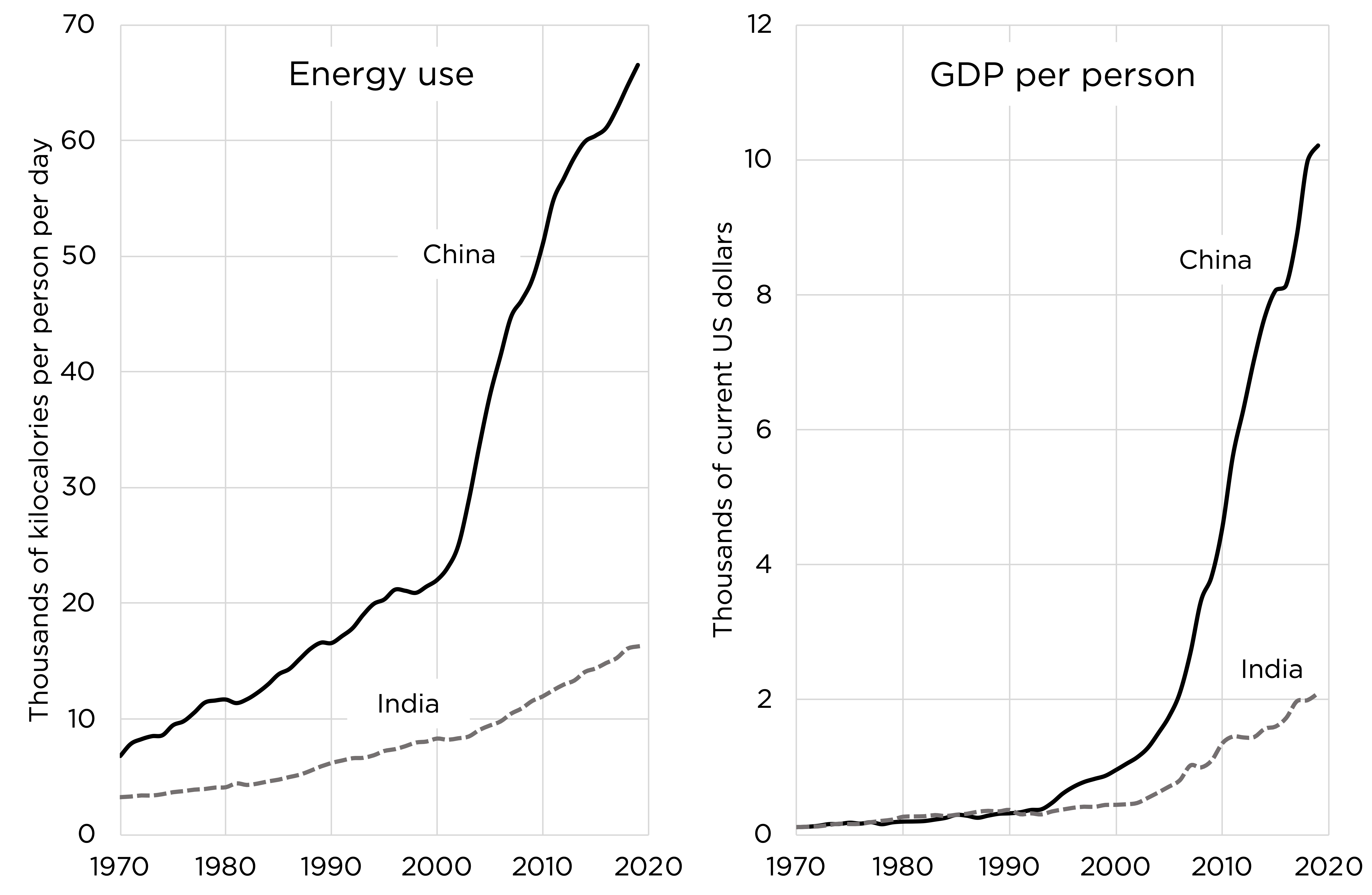
-
2. Cost-effective energy is desperately needed by billions more people
Billions lack the cost-effective energy they need to live lives of abundance and safety. 3 billion use less electricity than a typical American refrigerator. Most of those people use wood or dung for heating and cooking.3
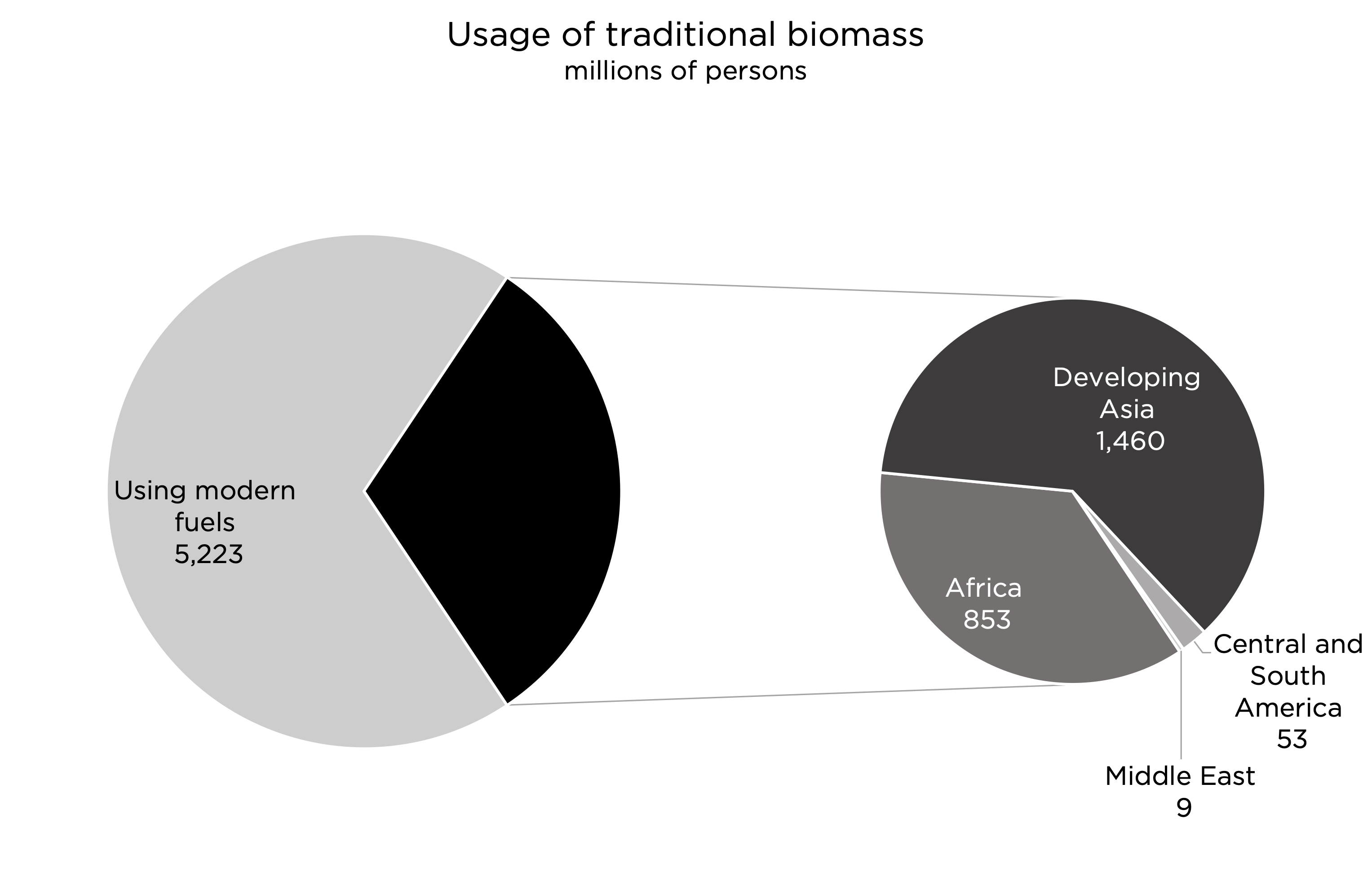
-
3: Fossil fuels are uniquely able to provide cost-effective energy
Fossil fuels provide 80% of the world's energy and are still growing despite huge hostility because no other source can match their combination of affordability, reliability, versatility, and scalability.4
-
The benefits of continuing fossil fuel use — conclusion
If we are free to use fossil fuels, billions more people can have the energy they need to be productive and prosperous.
If we follow “net zero,” virtually all the world’s 8 billion people will plunge into poverty and premature death.
-
The climate mastery benefits of continuing fossil fuel use — 3 essential facts
- A major use of fossil fuels is “climate mastery”
- The climate mastery benefits of fossil fuels have thus far overwhelmed any negative climate-side-effects
- Leading anti-fossil-fuel “experts” ignore fossil fuel climate mastery
-
1. A major use of fossil fuels is “climate mastery”
A huge benefit we get from fossil fuels is the ability to master climate danger—e.g., fossil fueled cooling, heating, irrigation—which can potentially neutralize fossil fuels’ negative climate impacts.
-
2. The climate mastery benefits of fossil fuels have thus far overwhelmed any negative climate side-effects
Climate-related disaster deaths have decreased 98% in the last 100 years as CO2 emissions have increased. And this “climate mastery” has been powered by fossil fuels.5
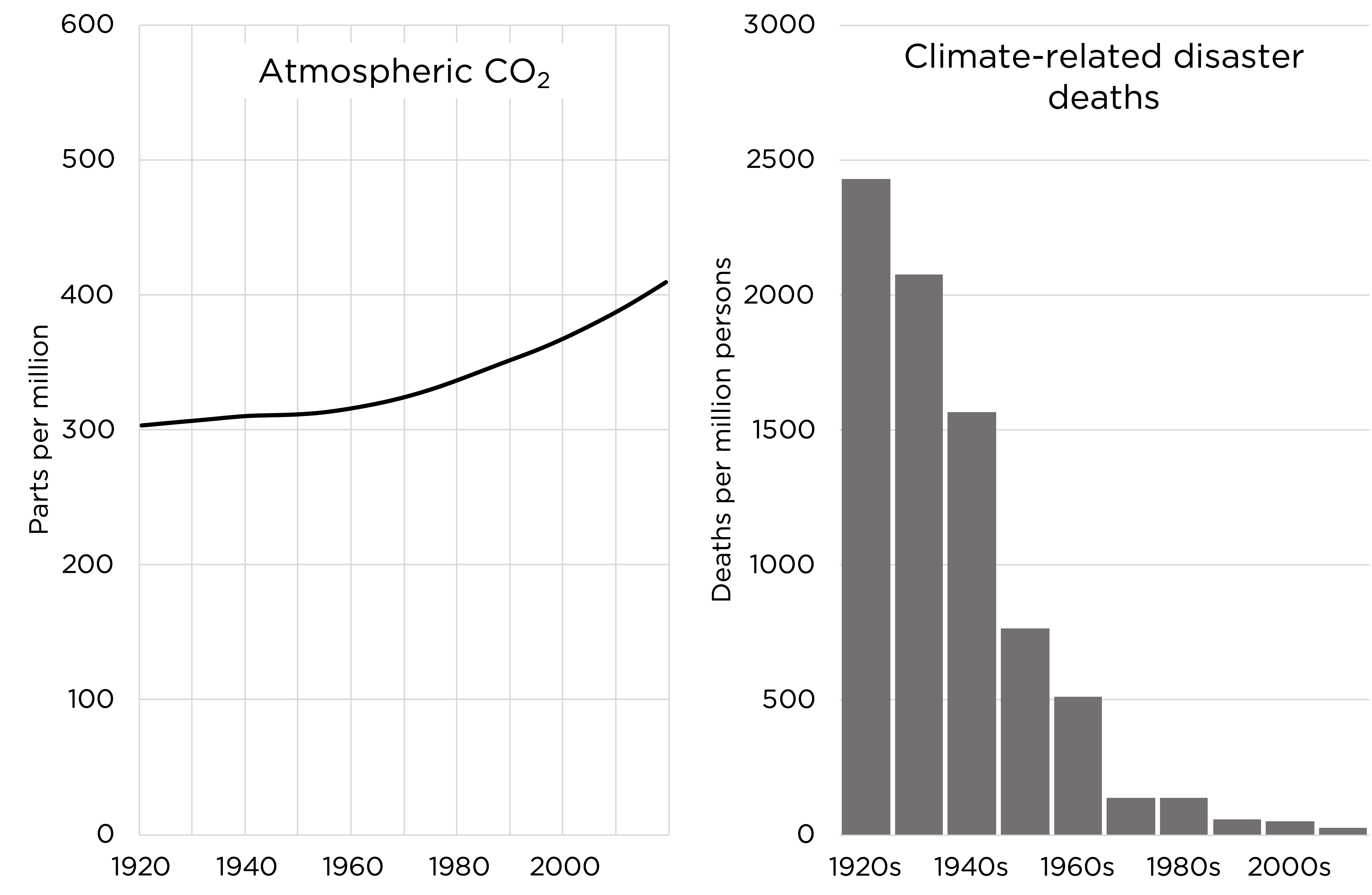
-
3. Leading anti-fossil-fuel “experts” ignore fossil fueled climate mastery
This isn't just true of the media but even the UN Intergovernmental Panel on Climate Change, whose multi-thousand page reports omit fossil fuel climate mastery—including declining climate disaster deaths! That’s like a polio report omitting the polio vaccine.
-
The climate mastery benefits of continuing fossil fuel use — conclusion
If we are free to use fossil fuels, we’ll get ever-better at neutralizing climate danger, natural or man-made.
If we follow “net zero” policies, climate danger will drastically increase from today.
-
The climate side-effects of continuing fossil fuel use — 3 essential facts
- Far more people die of cold than of heat
- Greenhouse warming is concentrated in colder regions, during colder seasons, and at colder times
- Even extreme projections are masterable with fossil fuels
-
1. Far more people die of cold than of heat
While leading institutions portray a world as increasingly riddled with heat-related death, the fact is that even though Earth has gotten 1°C warmer far more people die from cold than heat (even in India!).6
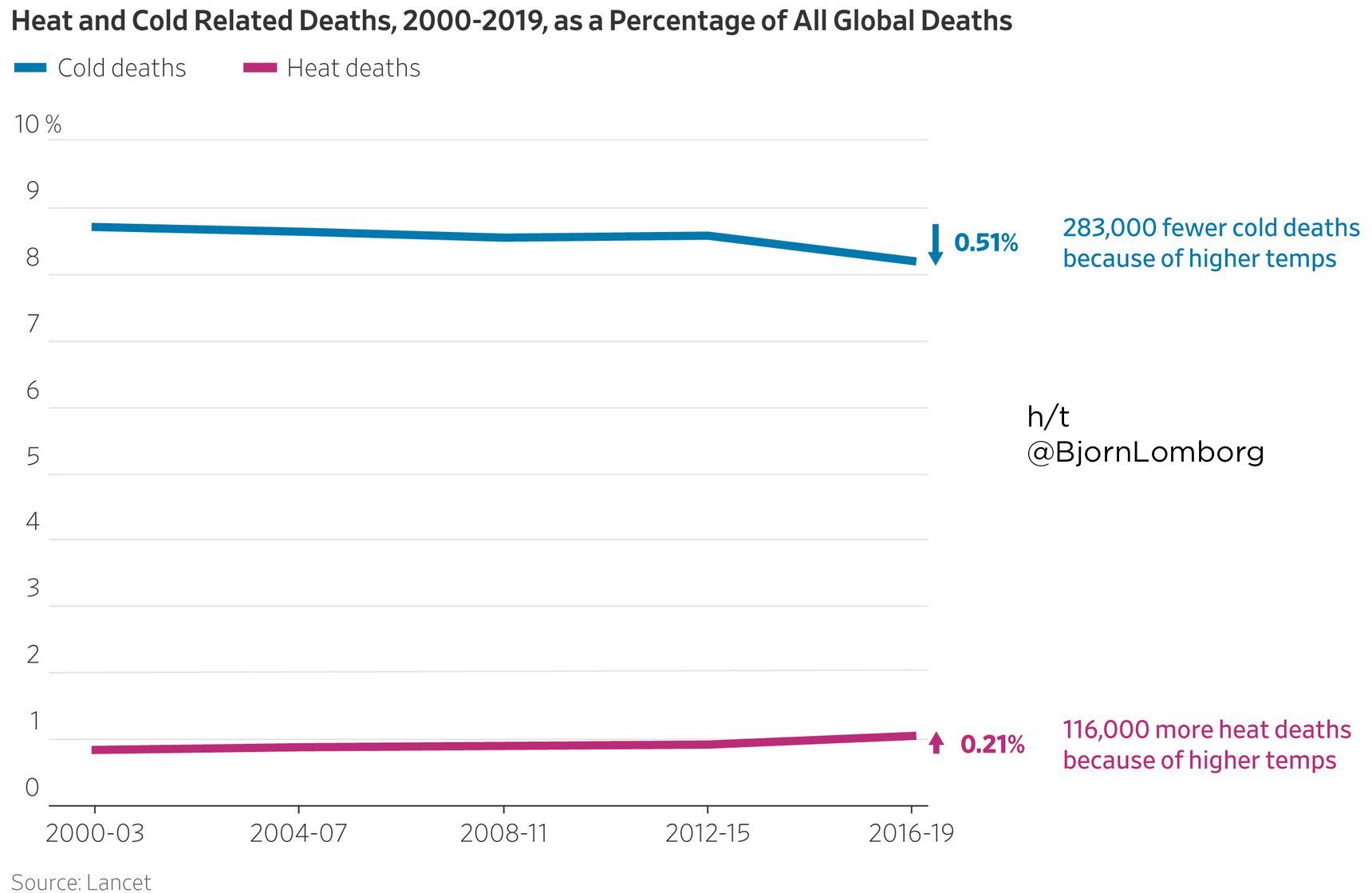
-
2. Greenhouse warming is concentrated in colder regions, during colder seasons, and at colder times
The mainstream view in climate science is that warming gets concentrated in colder places (Northern latitudes) and at colder times (nighttime) and during colder seasons (winter).7
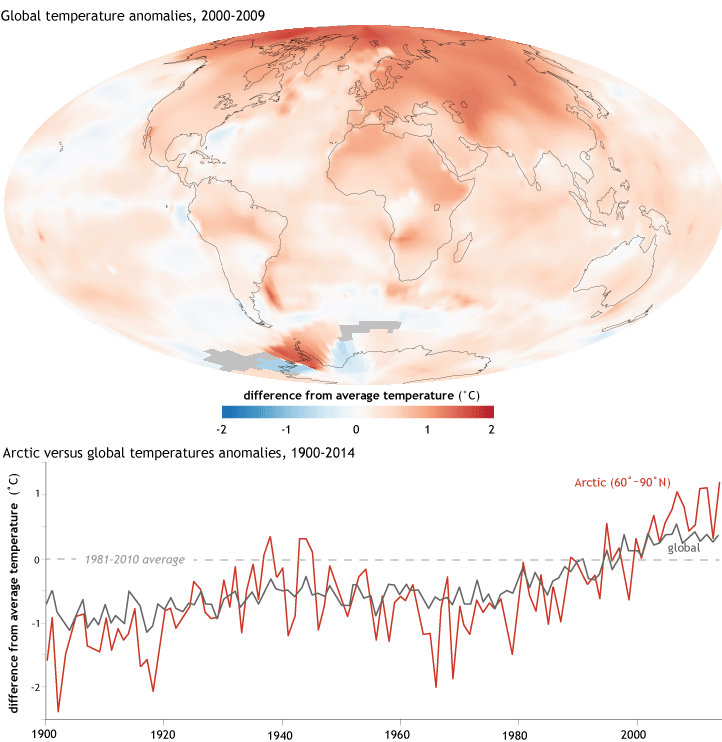
-
3. Even extreme projections of biased sources are masterable with fossil fuels
Even the Intergovernmental Panel on Climate Change, with many catastrophist biases, projects impacts from warming that would be masterable with fossil fuels. E.g., storms being 1-10% more intense. Sea levels rising 2-3 feet in 100 years.8
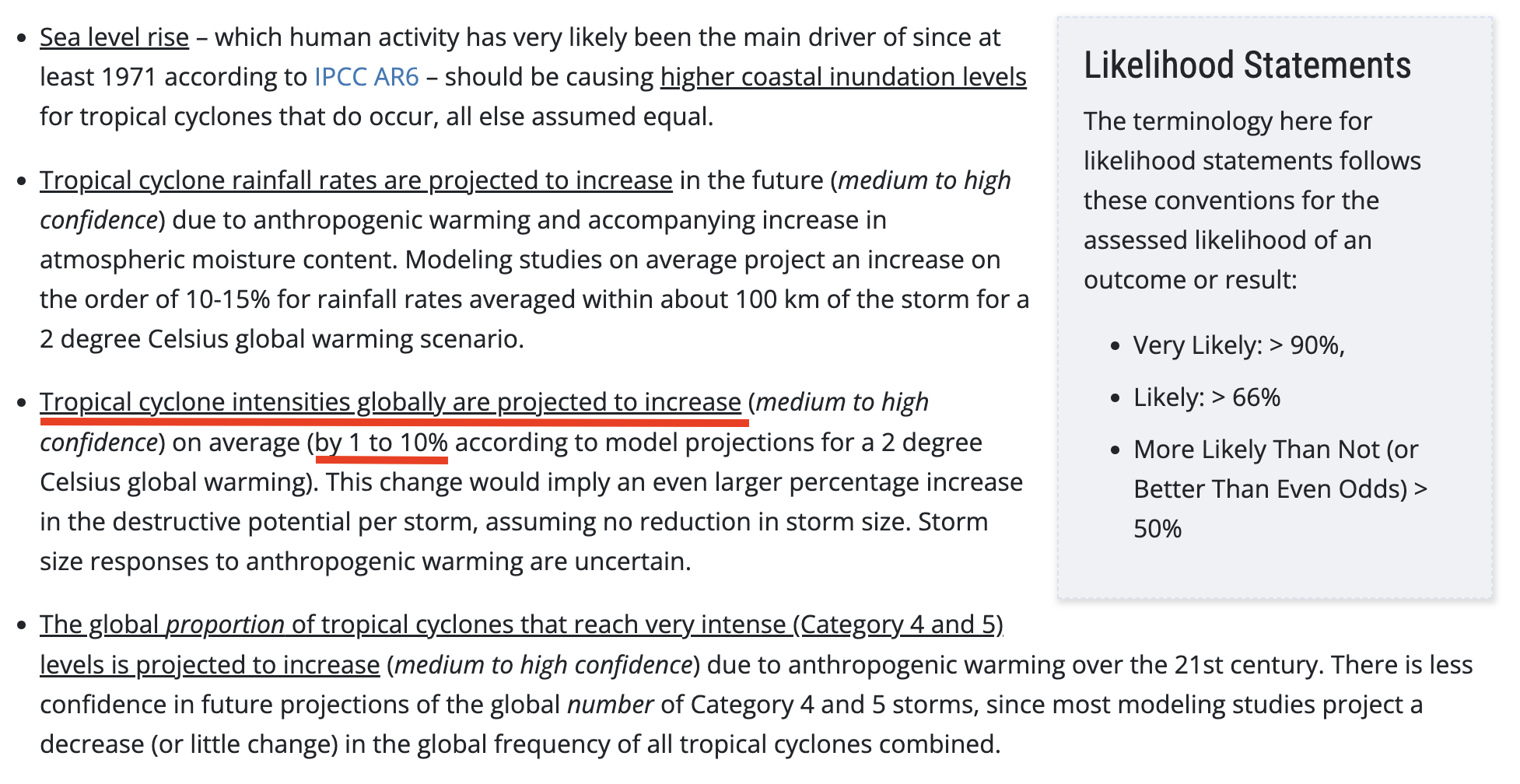
-
The climate side-effects of continuing fossil fuel use — conclusion
If we're free to use fossil fuels, we'll continue to have a warming impact that we can master and flourish with.
If we follow “net zero” policies we'll have a less-impacted but much less livable climate and world.
-
Note: While net zero policies will lessen climate impact short-term, energy freedom policies are more likely to lead to long-term emissions reductions.
Why?
Because they accelerate the rate at which nuclear and other alternatives become globally cost-competitive.
-
We need the continued productivity growth from cost-effective energy, which right now means mostly fossil fuels, in order to develop truly cost-competitive alternatives on a global scale. The economic destruction and regression of “net zero” will prevent good alternatives.
-
In practice, because “net zero” policies are apocalyptically destructive, they will not be implemented. What will happen is that they will do catastrophic destruction and actually slow the emergence of low-carbon alternatives.
This is exactly what's happening in Europe.9
-
Observe that the “net zero” movement has not come anywhere near achieving its goal of rapidly eliminating fossil fuel use. But just by slowing the growth of fossil fuel use it has caused a global energy crisis.
It's time to abandon “net zero” and embrace energy freedom.
-
To see me make the case for energy freedom vs. “net zero,” watch my recent debate at the University of Texas hosted by Texas McCombs Salem Center for Policy. Should World Governments Enact Net-Zero-By-2050 Policies?, a debate by John Doggett and Alex Epstein
References
-
Alex Epstein - How a fake climate emergency created a real energy emergency
Alex Epstein - America’s energy crisis is mostly US Democrats’ fault↩
-
IEA - Access to affordable, reliable, sustainable and modern energy for all
Robert Bryce - A Question of Power: Electricity and the Wealth of Nations↩
-
UC San Diego - The Keeling Curve
For every million people on earth, annual deaths from climate-related causes (extreme temperature, drought, flood, storms, wildfires) declined 98%--from an average of 247 per year during the 1920s to 2.5 in per year during the 2010s.
Data on disaster deaths come from EM-DAT, CRED / UCLouvain, Brussels, Belgium – www.emdat.be (D. Guha-Sapir).
Population estimates for the 1920s from the Maddison Database 2010, the Groningen Growth and Development Centre, Faculty of Economics and Business at University of Groningen. For years not shown, population is assumed to have grown at a steady rate.
Population estimates for the 2010s come from World Bank Data.↩
-
Bjorn Lomborg - Climate Change Saves More Lives Than You’d Think↩
-
NOAA - Climate change rule of thumb: cold "things" warming faster than warm things↩
-
CarbonBrief - In-depth Q&A: The IPCC’s sixth assessment report on climate science
-
Alex Epstein - Talking Points on how Europe's extreme vulnerability to Russia was totally preventable↩
